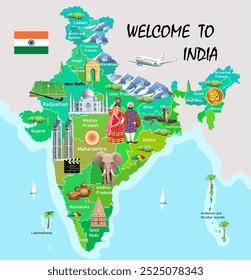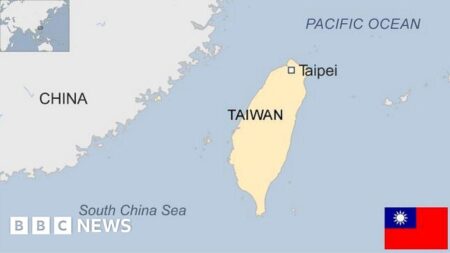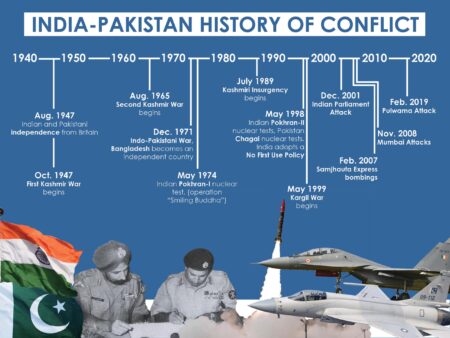China is deftly navigating the Libyan crisis to cement its influence in North Africa, masterfully balancing diplomatic ties and economic interests amid persistent regional unrest. This strategy underscores Beijing’s growing ambitions throughout the Global South
Browsing: Regional Stability
Japan’s former minister Takaichi delivered a powerful warning: an attack on American forces in Taiwan could shatter the US-Japan alliance. She also stressed that Tokyo is unlikely to intervene, underscoring the rising tensions heating up the region
Eurasia Group’s “Top Risks 2026” highlights the escalating geopolitical tensions, sweeping economic changes, and technological challenges that could define Japan’s path to stability and growth. At the forefront are urgent regional security threats and possible disruptions to critical supply chains that demand close attention
Japan skillfully navigates a delicate foreign policy, expertly balancing its relationships with both China and the U.S. Emphasizing quiet diplomacy and robust economic partnerships, it lets impactful actions speak louder, steadily expanding its influence throughout the region
Venezuela’s crisis dramatically exposes the harsh realities of economic collapse and political chaos. To safeguard our nation’s future, Australia’s security strategy must boldly confront these challenges head-on, ensuring stability in an ever-changing global landscape
Japan’s Cabinet has approved a groundbreaking defense budget, supercharging its military strength to tackle growing challenges from China. This decisive action underscores rising regional tensions and Tokyo’s steadfast dedication to protecting national security
Tensions are rising sharply along the India-China border, with fresh military buildups signaling a potential flashpoint. Although diplomatic talks are still underway, the shadow of conflict grows ever darker
Opinion | Japan’s evolving stance on Taiwan is reshaping global perspectives as tensions soar across East Asia. This daring pivot challenges long-standing diplomatic norms and signals the beginning of a transformative era in regional security
Beijing has fiercely condemned Japan’s recent missile deployment near Taiwan as “extremely dangerous,” accusing Tokyo of stoking regional tensions. This provocative action intensifies security concerns amid escalating instability across the Taiwan Strait
The Philippines has extended a warm invitation to Chinese President Xi Jinping to visit Manila, signaling a keen eagerness to deepen their relationship despite existing tensions. Meanwhile, Manila is actively pushing for a binding South China Sea code of conduct aimed at preserving peace and stability across the region
Japan is poised to take the spotlight in protecting a free and open Indo-Pacific region. Through forging powerful strategic alliances and enhancing maritime security, Tokyo is resolutely committed to maintaining stability amid rising geopolitical tensions
Rising tensions between the U.S. and China are placing countries like South Korea in a tough position, as they strive to balance deep economic connections with Beijing against vital security alliances with Washington amid an intensifying geopolitical rivalry
India’s recent outreach to the Taliban marks a daring strategic leap designed to diminish Pakistan’s influence in Afghanistan. Experts are now buzzing with debate over whether this breakthrough can be sustained long-term to decisively sideline Pakistan once and for all
Japan is raising alarms over the weakening US-India partnership, cautioning that this could trigger regional instability and strategic setbacks. Tokyo views a strong US-India alliance as crucial to countering China’s growing influence throughout Asia
The Lowy Institute urges the UK to team up with the Indo-Pacific Four-Australia, India, Japan, and South Korea-to form a formidable new Quintet. This vibrant alliance aims to strengthen regional security and stand as a robust counterbalance to China’s expanding influence in the Indo-Pacific
The U.K. Carrier Strike Group’s historic visit to Japan marks a dynamic leap forward for regional security and cooperation in the Indo-Pacific, reinforcing a united front to maintain stability amid rising tensions
Many in Taiwan fear that China’s growing influence could be the first step toward a stealthy takeover. As economic ties deepen and political pressure mounts, concerns are rising that Beijing is gradually chipping away at the island’s hard-won autonomy
The Australian Embassy warmly welcomes the Thailand-Cambodia ceasefire, urging both nations to sustain peace and continue open dialogue for enduring regional stability. This breakthrough is celebrated as a hopeful and exciting step toward a brighter future
In a noteworthy turn of events, “Operation Shield” has led to the postponement of civil defense mock drills in states adjacent to Pakistan. Officials have attributed this delay to ‘administrative reasons,’ sparking concerns about our readiness in light of persistent security challenges.
As tensions soar between India and Pakistan, fears grow over the possibility of a conflict spiraling into a full-scale war. Both nations are ramping up their military strength, while diplomatic relations continue to fray. The world watches with bated breath, anxious about what might unfold.



















